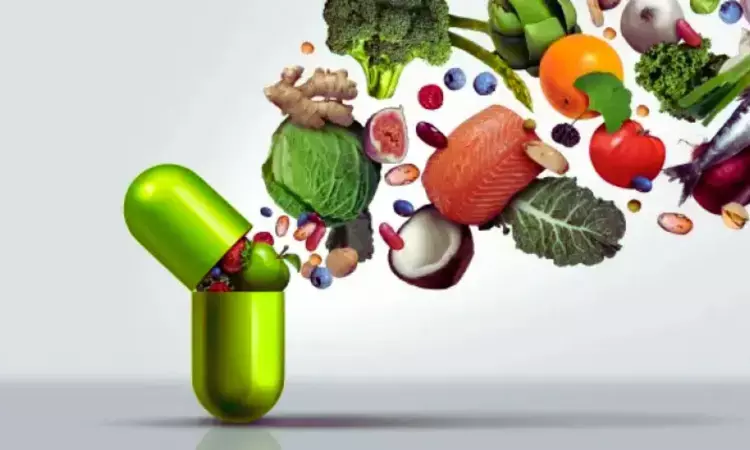- Home
- Medical news & Guidelines
- Anesthesiology
- Cardiology and CTVS
- Critical Care
- Dentistry
- Dermatology
- Diabetes and Endocrinology
- ENT
- Gastroenterology
- Medicine
- Nephrology
- Neurology
- Obstretics-Gynaecology
- Oncology
- Ophthalmology
- Orthopaedics
- Pediatrics-Neonatology
- Psychiatry
- Pulmonology
- Radiology
- Surgery
- Urology
- Laboratory Medicine
- Diet
- Nursing
- Paramedical
- Physiotherapy
- Health news
- Fact Check
- Bone Health Fact Check
- Brain Health Fact Check
- Cancer Related Fact Check
- Child Care Fact Check
- Dental and oral health fact check
- Diabetes and metabolic health fact check
- Diet and Nutrition Fact Check
- Eye and ENT Care Fact Check
- Fitness fact check
- Gut health fact check
- Heart health fact check
- Kidney health fact check
- Medical education fact check
- Men's health fact check
- Respiratory fact check
- Skin and hair care fact check
- Vaccine and Immunization fact check
- Women's health fact check
- AYUSH
- State News
- Andaman and Nicobar Islands
- Andhra Pradesh
- Arunachal Pradesh
- Assam
- Bihar
- Chandigarh
- Chattisgarh
- Dadra and Nagar Haveli
- Daman and Diu
- Delhi
- Goa
- Gujarat
- Haryana
- Himachal Pradesh
- Jammu & Kashmir
- Jharkhand
- Karnataka
- Kerala
- Ladakh
- Lakshadweep
- Madhya Pradesh
- Maharashtra
- Manipur
- Meghalaya
- Mizoram
- Nagaland
- Odisha
- Puducherry
- Punjab
- Rajasthan
- Sikkim
- Tamil Nadu
- Telangana
- Tripura
- Uttar Pradesh
- Uttrakhand
- West Bengal
- Medical Education
- Industry
Dietary Supplements Promising in Preventing Kidney Stones by Targeting Crystal Formation and Growth: Study Finds

Thailand: New research presented at NUTRITION 2025, the annual meeting of the American Society for Nutrition, has revealed that several commonly used dietary supplements may help prevent the formation and progression of calcium oxalate kidney stones—the most prevalent type of kidney stone worldwide.
Led by Dr. Visith Thongboonkerd from Siriraj Hospital, Mahidol University, Bangkok, Thailand, the study explored how five dietary supplements—caffeine, epigallocatechin-3-gallate (EGCG), N-acetylcysteine (NAC), resveratrol, and trigonelline—interact with calcium oxalate (CaOx) crystals. These crystals are a key component in kidney stone development. The investigation aimed to understand how these supplements influence crystal formation, growth, and aggregation, which are critical steps in kidney stone formation.
“Preventing kidney stone disease (KSD) and reducing its recurrence remains a significant challenge,” according to Dr. Thongboonkerd. “We explored whether these dietary compounds could interfere with the crystallization process at physiologically relevant concentrations.”
The research team conducted a series of laboratory experiments using concentrations of each supplement that reflect typical levels found in human urine (1, 10, and 100 μM).
The key findings of the study were as follows:
- The study showed that each dietary supplement influenced different stages of calcium oxalate (CaOx) crystal development.
- Caffeine was observed to inhibit crystal formation.
- EGCG, present in green tea, prevented both the formation and growth of CaOx crystals.
- N-acetylcysteine (NAC) effectively reduced crystal aggregation, a crucial factor in stone enlargement.
- Resveratrol inhibited crystal growth but, paradoxically, promoted aggregation, indicating a dual role depending on the stage of stone formation.
- Trigonelline, found in coffee and fenugreek, blocked both the growth and aggregation of crystals.
- Among all the supplements, EGCG was the most effective in preventing crystal formation.
- Resveratrol was the strongest inhibitor of crystal growth.
- NAC was the only supplement that significantly curbed crystal aggregation.
The findings align with previous observations by Dr. Thongboonkerd’s team, who reported that while normal urinary proteins generally hinder CaOx crystallization, oxidative changes in these proteins among kidney stone formers may actually encourage stone formation. This study aimed to assess whether dietary antioxidants could counteract such pro-stone effects.
While the results are encouraging, Dr. Thongboonkerd emphasized the need for caution before translating these findings into clinical recommendations. “Further research, particularly in clinical settings, is needed to confirm these effects in humans and to ensure that these supplements are safe and effective for long-term use in kidney stone prevention,” he said.
The study adds to the growing body of evidence suggesting that targeted nutritional strategies could play a supportive role in managing and preventing kidney stone disease.
Reference: https://nutrition2025.eventscribe.net/fsPopup.asp?PresenterID=1797305&mode=posterPresenterInfo
Dr Kamal Kant Kohli-MBBS, DTCD- a chest specialist with more than 30 years of practice and a flair for writing clinical articles, Dr Kamal Kant Kohli joined Medical Dialogues as a Chief Editor of Medical News. Besides writing articles, as an editor, he proofreads and verifies all the medical content published on Medical Dialogues including those coming from journals, studies,medical conferences,guidelines etc. Email: drkohli@medicaldialogues.in. Contact no. 011-43720751


